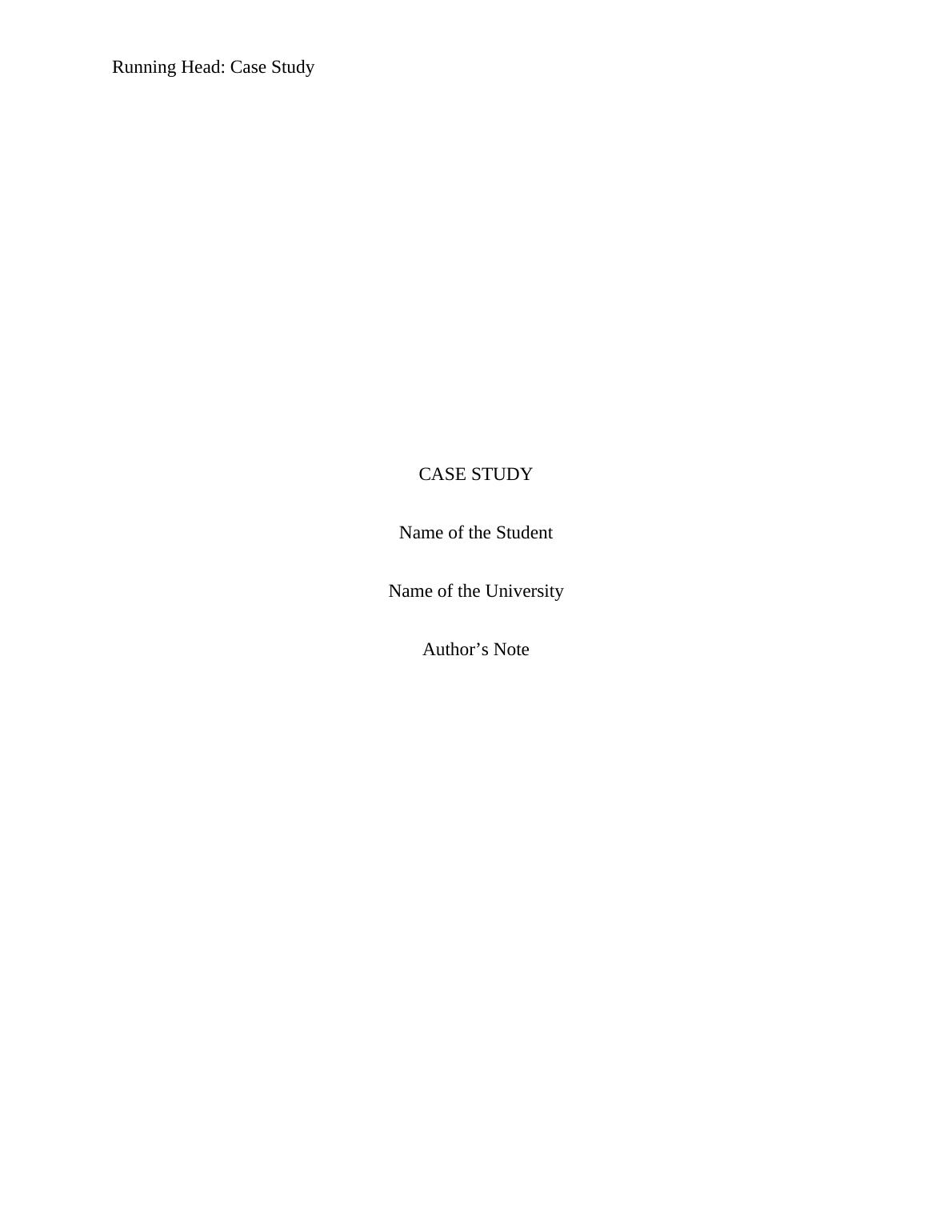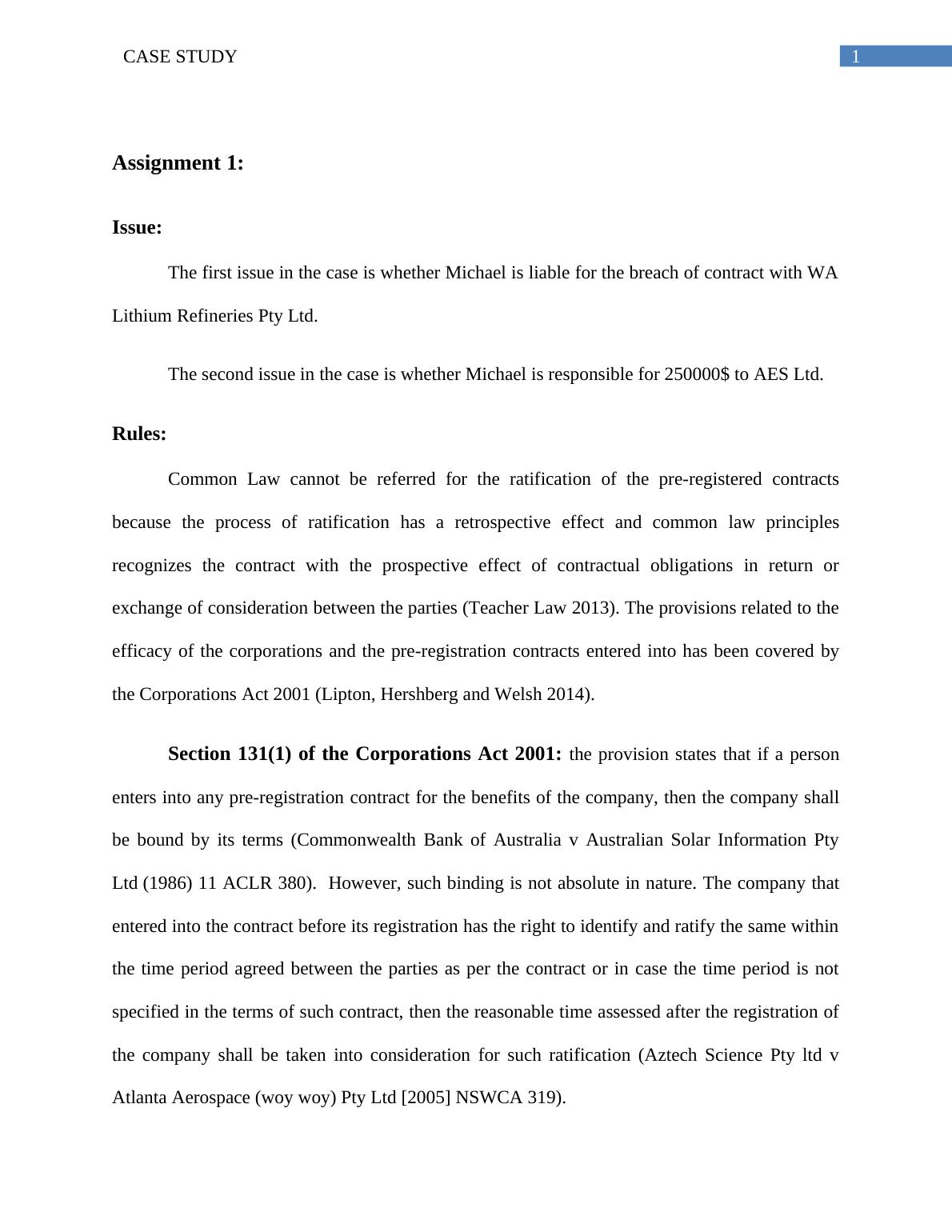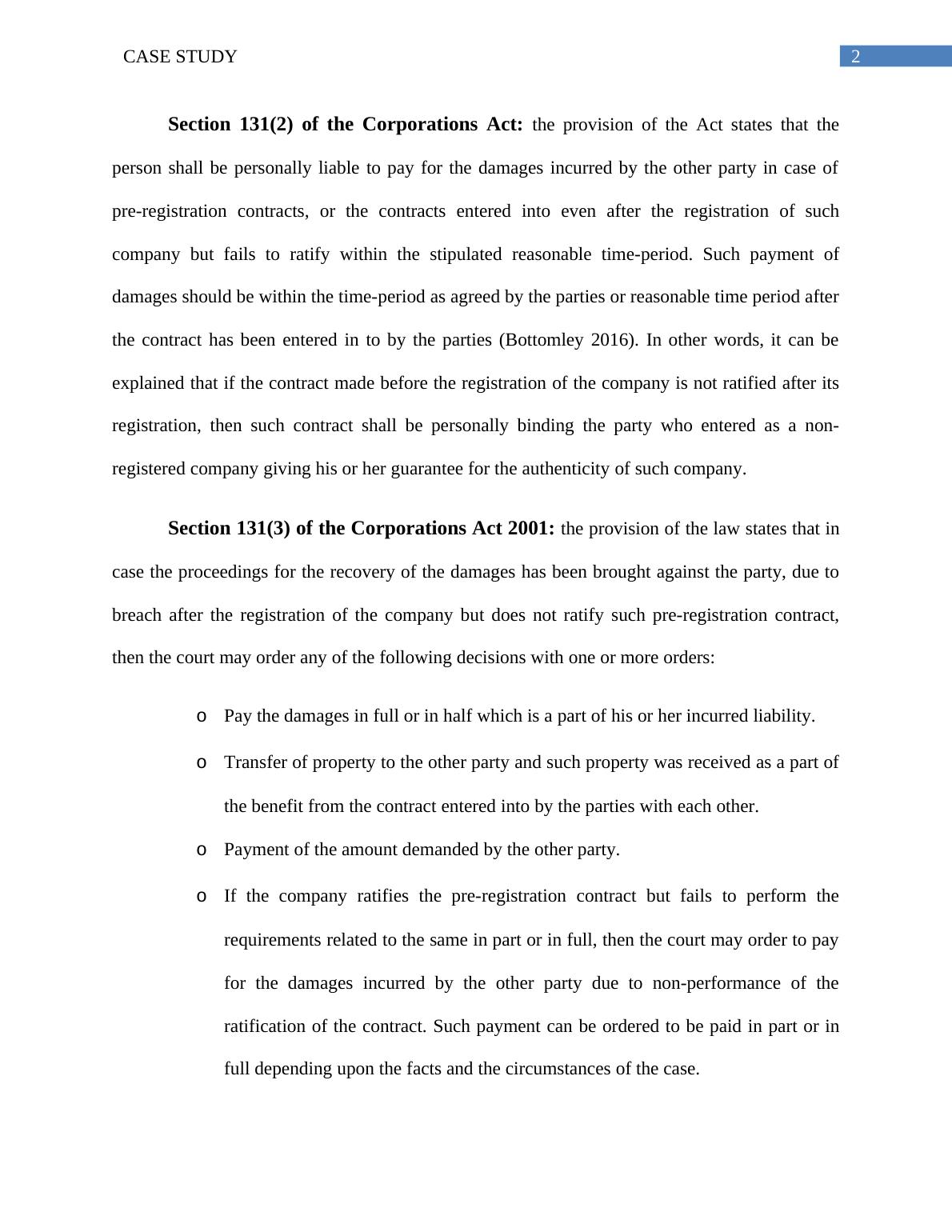Case Study on Breach of Contract and Corporate Law
Answering two problem-type questions using the ILAC format within a word limit of 2000 words.
10 Pages2460 Words128 Views
Added on 2022-11-10
About This Document
This document contains two case studies related to breach of contract and corporate law. The first case study discusses the legal provisions related to pre-registration contracts and the liability of the parties involved. The second case study explains the concept of lifting the corporate veil and ostensible authority. The document also includes relevant rules and their application in the given scenarios.
Case Study on Breach of Contract and Corporate Law
Answering two problem-type questions using the ILAC format within a word limit of 2000 words.
Added on 2022-11-10
ShareRelated Documents
End of preview
Want to access all the pages? Upload your documents or become a member.
Case Study on Contract Law and Corporate Law
|9
|2322
|177
Corporations Law | Assignment-1
|6
|1068
|16
Commonwealth Bank of Australia
|5
|1044
|81
Legal Analysis of Business Transactions and Directorial Duties in Chip-Eze Pty Ltd and Incredible Gifts Pty Ltd
|7
|3127
|292
TMA 01 - Assignment on Contract Law
|10
|2723
|57
Contract and Corporations Law Presentation
|13
|612
|19



